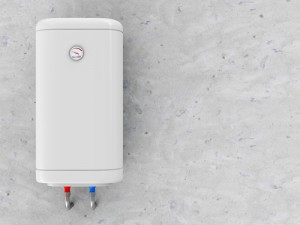
From bathing to washing clothes and dishes, an uninterrupted supply of hot water is central to your family’s hygiene and comfort.
Replacing your water heater ahead of time is a smarter move than waiting for the appliance to fail at the worst possible moment. Predicting precisely when your water heater will fail may not be an exact science but there are several telltale signs when it’s on its last legs.
Be proactive. Don’t leave your family “in the cold.”
Happy Birthday?
No water heater is built to last forever. Tanks crack. Seals degrade. Rust and corrosion eat away at vital parts.
As a general rule the average lifespan of most water heaters is around 10 years. When yours hits this age, it’s a good idea to consider shopping for a replacement.
If you don’t know how old your machine is, it’s easy to find out. Check the serial number for an alphanumeric code that indicates the manufacture date. You may need to look up how to read the code on the manufacturer’s website.
A Supply that Doesn’t Last
When water temperature slowly declines or hot water seems to run out more quickly than it used to, there’s a good chance something may be wrong with your heating element.
Often all you need to do is replace the element, but sometimes low hot water quality signals hard water deposits have hardened in the tank. If you remove the element and find it coated in minerals, it’s best to purchase a new unit instead of investing money in repairing a heater that’s compromised.
Rust in the Water
Periodic flushing of your water heater is routine maintenance that should not be overlooked. If the water comes out rusty when you empty the tank, it’s possible the tank has corroded past the point of no return.
Worse than spending the money on a new heater today is waiting for a rusted-out tank to leak when you’re out of town tomorrow. Water damage can run into the tens of thousands of dollars in repair bills.
If you notice rusty water coming directly from your taps, it is almost surely time to head to your local plumbing supply warehouse.
Pro Tip: Check your anode rod and replace regularly to extend the life of your tank. An anode rod is a special piece of metal inside the tank designed to pull corrosive material away from the tank walls.
Leaking or Moisture around the Tank
Water on the floor around your tank is almost always a sign the water heater is done for, especially if the unit has surpassed a decade of service.
Check connections and other possible sources of leaking before purchasing a replacement but don’t let a small drip turn into a big one.
Use Your Ears
A water heater that bangs and clangs every time it’s in use is essentially knocking on the door of the scrap heap.
The reason your machine clanks is that crystalized mineral deposits are forcing the element to work harder and harder. This extra exertion causes the tank to expand quickly, leading to loud sounds reverberating throughout the house.
